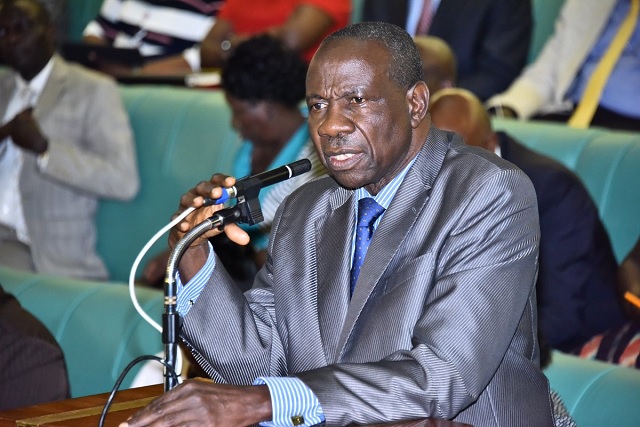
Kampala, Uganda | THE INDEPENDENT | Government has proposed an amendment to the Estates for Missing Persons Act 1973 that will allow persons between 18 and 25 years of age to benefit from the estate of a missing person provided they are still in school and not married.
This is one of the proposals in the Estates of Missing Persons (Management) (Amendment) Bill, 2019 government has tabled before parliament. The bill seeks to amend certain provisions of the 1973 Act. There are three proposals including one that seeks to revise the age for sons and daughters as dependent relatives.
First, the Bill among others seeks to amend the age of a minor from 21 in the 1973 Act to 18 years in line with the 1995 constitution of Uganda and to provide for rights of children with disabilities.
Government proposes to amend the interpretation for dependent relative who in the Estates for Missing Persons, Act 1973 include a wife, a husband, a son or daughter “less than eighteen years of age or daughter of or above eighteen years of age who is wholly or substantially dependent on the missing person…”
The Estates for Missing Persons, Act 1973 describes a missing person as one “who disappears from Uganda without making provision for the administration of his or her estate and investigations have shown that his or her whereabouts are unknown.”
Government is proposing that the dependent son or daughter should be “above eighteen years of age but below twenty five years of age, where he or she is still in school and is not married and a son and daughter with a disability.” The 1973 Act bars any person less than 21 years from being granted an order to manage the estate of a missing person.
There is also a proposal that the courts shall have powers to determine whether a person who otherwise qualified to administer an estate as a dependent relative is fit to do so and that “the court may refuse to grant an order for the management of an estate of a missing person, where an applicant is not suitable.”
The Bill seeks to revise the monetary jurisdiction of the Magistrates Courts to conform to the Magistrates Courts Act, 1971. Therefore, the Magistrate Grade 1 courts will grant orders for estates with a total value of a maximum of Shillings 20 million from a maximum value of Shillings 50,000.
The Chief Magistrates Court will handle estates with a maximum value of 50 million Shillings up from a maximum of Shillings 100,000 as the monetary jurisdiction. The Bill seeks to repeal the provision for the High Court to grant orders for estates with a total value exceeding Shillings 100,000.
The 1973 Act gives a magistrate Grade 11 powers to grant orders where the total value of the estate does not exceed Shillings 10,000, from Shillings 10,000 to 50,000 for magistrate grade 1, between Shillings 50,000 to Shillings 100,000 for a chief magistrate and above Shillings 100,000 for the High Court.
In the Certificate of Financial Implications for the Bill, Finance Minister, Matia Kasaija says the implementation of the Bill will not result in any savings or revenue to the government but associated expenditures shall be accommodated within the budgets for the implementing agencies led by the office of the Administrator General at the Uganda Registration Service Bureau.
Kasaija signed the certificate on 9 August, 2019. Last week, the Deputy Attorney General presented the Bill with four others relating to the management of properties of deceased or missing persons for their first reading.
These include The Administrator General’s (Amendment) Bill, 2019, The Administration of Estates (Small Estates) (Special Provisions), The Probate Resealing (Amendment) Bill, 2019 and The Succession (Amendment) Bill, 2019. The five Bills have been forwarded to the Legal and Parliamentary Affairs Committee for further scrutiny.
*****
URN
 The Independent Uganda: You get the Truth we Pay the Price
The Independent Uganda: You get the Truth we Pay the Price





